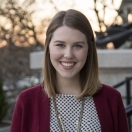
Last week, we welcomed nine Champions of Change to the White House to learn about the fantastic work they are doing to advance computer science (CS) education in the United States.
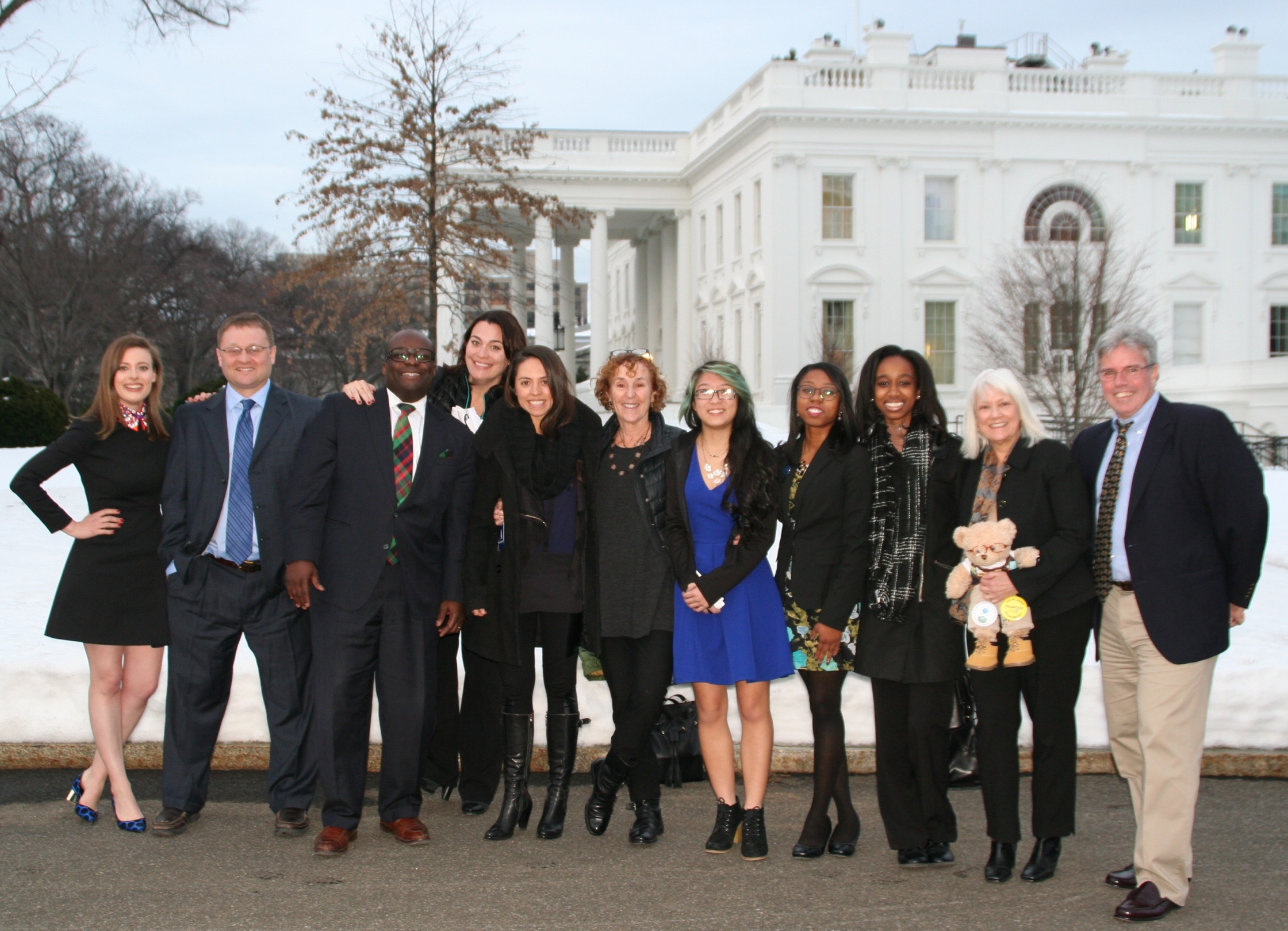
The group participated in roundtable discussions with Senior Advisor to the President Valerie Jarrett, Acting Secretary of Education John King, and U.S. Chief Technology Officer Megan Smith, among others. The Champions were also joined by actress and director Gillian Jacobs and executive director and co-founder of Amy Poehler’s Smart Girls, Meredith Walker. Through these conversations, they discussed how we can both increase access to computer science and improve upon existing standards.
The visit came just before the announcement this weekend of the President’s Computer Science for All initiative. The initiative provides $4 billion in funding for states and $100 million directly for districts in his upcoming budget and invests more than $135 million beginning this year by the National Science Foundation and the Corporation for National and Community Service to support and train CS teachers. The President also called on even more Governors, Mayors, education leaders, CEOs, philanthropists, creative media and technology professionals, and others to get involved in the efforts.
It was an honor to host these impressive Champions of Change and to hear their stories about what they’re doing to improve CS education in their communities. And as the President said in his Weekly Address, “That’s what this is all about – each of us doing our part to make sure all our young people can compete in a high-tech, global economy. They’re the ones who will make sure America keeps growing, keeps innovating, and keeps leading the world in the years ahead. And they’re the reason I’ve never been more confident about our future.”
Great to meet such inspiring #WHChamps in Computer Science @smrtgrls @GillianJacobs #WomenInSTEM pic.twitter.com/lGjlSqVvvE
— Valerie Jarrett (@vj44) January 26, 2016
Before the event, the Champions shared their reflections with us:
Cordell Carter
My father never reached his own educational dreams. Family and life and the Vietnam War put his feet on a different path. His own unrealized goals made his dreams for his children twice as grand.
While my friends practiced their jump shot and perfected their fastball, I fell in love with my Commodore 64. Technology became my sport of choice, and my father was my coach - feeding my passion for all things science, technology, engineering, and math related. He knew that STEM could change my life path long before STEM was a household phrase.
The day I joined TechTown Foundation, Inc. as its first CEO, was a proud one for my dad. I would be leading this first-of-its-kind organization in building partnerships with schools and teachers that extends the classroom for STEM learners. It was his dream – and mine – come true.
I see my job much like my dad’s when he put that first Commodore 64 in my hands. My team and I are coaches. We know that less than 1% of high school football players will play professionally. That stat drops even more in baseball. But EVERY child can go pro in STEM. Regardless of background or physical abilities, an investment in our children’s STEM education can lead to super star professional careers.
Cordell Carter is Chief Executive Officer of TechTown Foundation, a technology and entrepreneurial learning center serving hundreds of learners weekly in Chattanooga, Tennessee.
Andrea Chaves
Girls generally have the courage to take on new challenges. They are resourceful, active, curious, creative and aggressive: great characteristics to succeed in any STEM career. Yet, sadly, women are vastly underrepresented in these fields. I believe that this disparity is not because women lack STEM related skills, but rather because in many ways, young girls are conditioned to believe that careers in technology and science are reserved for men.
As an educator in an all-girls school, I felt the urge to raise awareness and nurture passions in STEM. Thus, in the fall of 2012 I started TechCrew, an after-school club to expose students to different opportunities in STEM. TechCrew started with eight girls who only had a few technological skills and it has grown to a class comprised of almost thirty girls who work collaboratively to create and produce technology-driven projects. Today, TechCrew is almost entirely a student-run organization with older members that inspire other young girls to explore STEM fields through their expertise.
That same year, I decided to integrate Computer Science into all of my classes. Currently, I teach classes to young women ranging from sixth to twelfth grade; all of which incorporate different aspects of STEM. Ultimately, I work towards proving that girls only need the exposure to STEM in order to be capable of succeeding in these careers; my students are vivid examples of this.
Andrea Chaves serves as a teacher and creative director at the Young Women’s Leadership School in Astoria, New York.
Grace Clark
I got my first taste of code from my older brother, Austin, when I was in the fourth grade. Then, in the fifth grade I was introduced to robotics using Lego robots and Microsoft Excel. By then I was thoroughly enchanted by the world of coding and technology.
When I graduated eighth grade in the summer of 2014, I went to an expo for schools with my mom at 4.0 Schools where I met John Fraboni, the founder of Operation Spark. Operation Spark offers free coding courses to the youth of New Orleans. I attended their first coding boot camp that summer. While working with Spark I attended Essence Festival's “Yes We Code” event in 2014 to represent inner city youth in coding and technology. In the summer of 2015 I taught coding to young children at Arthur Ashe Elementary school through a boot camp with First Line schools.
That summer, Operation Spark hosted a Hackathon which members of the White House and Chief Michael Harrison of the NOPD attended. At the Hackathon, I taught Chief Harrison how to write his first line of code! In December of 2015, I attended President Obama's MBK initiative at the White House and met inspiring people who are doing their part to better their communities through technology.
These great experiences have inspired me to teach English and computer science. As a sophomore at International High School of New Orleans I am honored to represent my city.
Grace Clark is a sophomore at International High School of New Orleans, Louisiana.
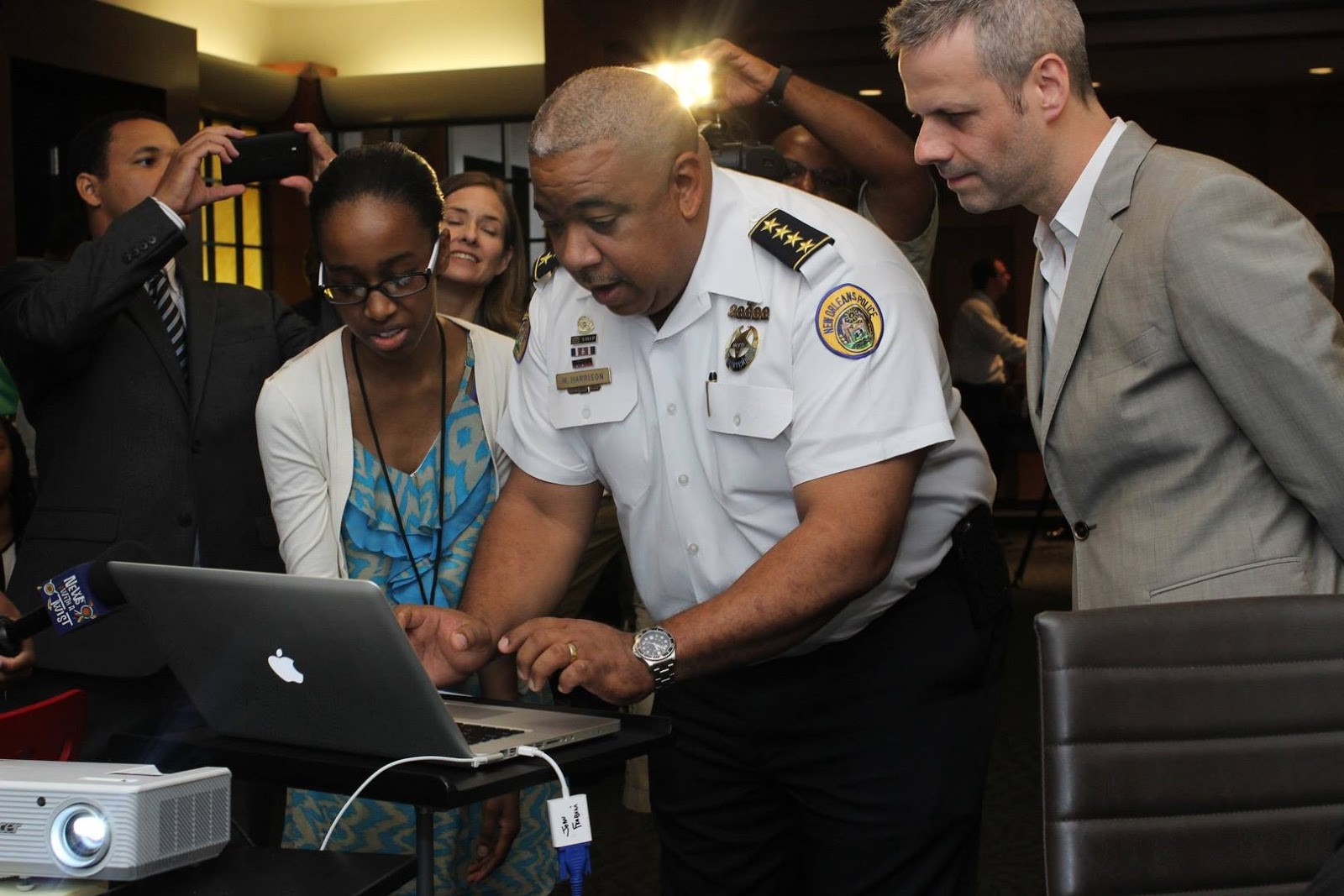
James Forde
As the son of Irish immigrants, I was instilled with the value of education and understood its ability to help me achieve my American Dream. As a Science, Technology, Engineering and Math (STEM) educator, I want the same for my diverse students, many of whom are also first generation Americans in Stamford, CT.
I believe that a quality STEM education has the potential to make a difference in lives of my students. It can excite them about school, provide them with essential critical thinking skills and can lead to innovating and rewarding career choices. As a nation we need continue to work to unleash the great potential that exists within all students by ensuring high quality STEM experiences.
My excitement for STEM and coding education began as a Master Teacher in the WNET National Teacher Training Institute and continued in graduate school and at GE Foundation sponsored NSTA/NASA STEM conferences designed for Stamford educators.
James Forde is currently a science teacher at Cloonan Middle School in Stamford, Connecticut. He is a past Teacher of the Year in Stamford, a STEM advocate and a coding club moderator.
Christina Li
When my brothers and I programmed our first basic webpage with HTML in third grade, for me, it was love at first site.
Even now, as a programmer on my high school robotics team, #217 the ThunderChickens, computer science and programming still fascinates me. I chase that elusive "aha" moment, when suddenly, all the bugs and errors are gone and everything works perfectly. With code, pretty much everything is possible: drones can fly, robots can dance, cars can drive themselves.
However, one of the biggest problems in this increasingly important field is the large gender gap. According to the National Center for Women & Information Technology, only 18 percent of all computer science degrees go to women. This is something that has to change for the future, beginning with young students.
With Hello World, the computer science day camp I organized to teach how to code apps, websites, robots, and games, middle school girls are the main focus. I really wanted to show these students that computer science and engineering definitely isn't boring by any means, nor is it something only guys can excel in. By helping these girls say "hello" to the world of computer science, I hope to bring change to my community and help create a more diverse field.
Christina Li is currently a high school senior at Adlai E. Stevenson High School and the Utica Center for Math, Science, and Technology in Macomb, Michigan.
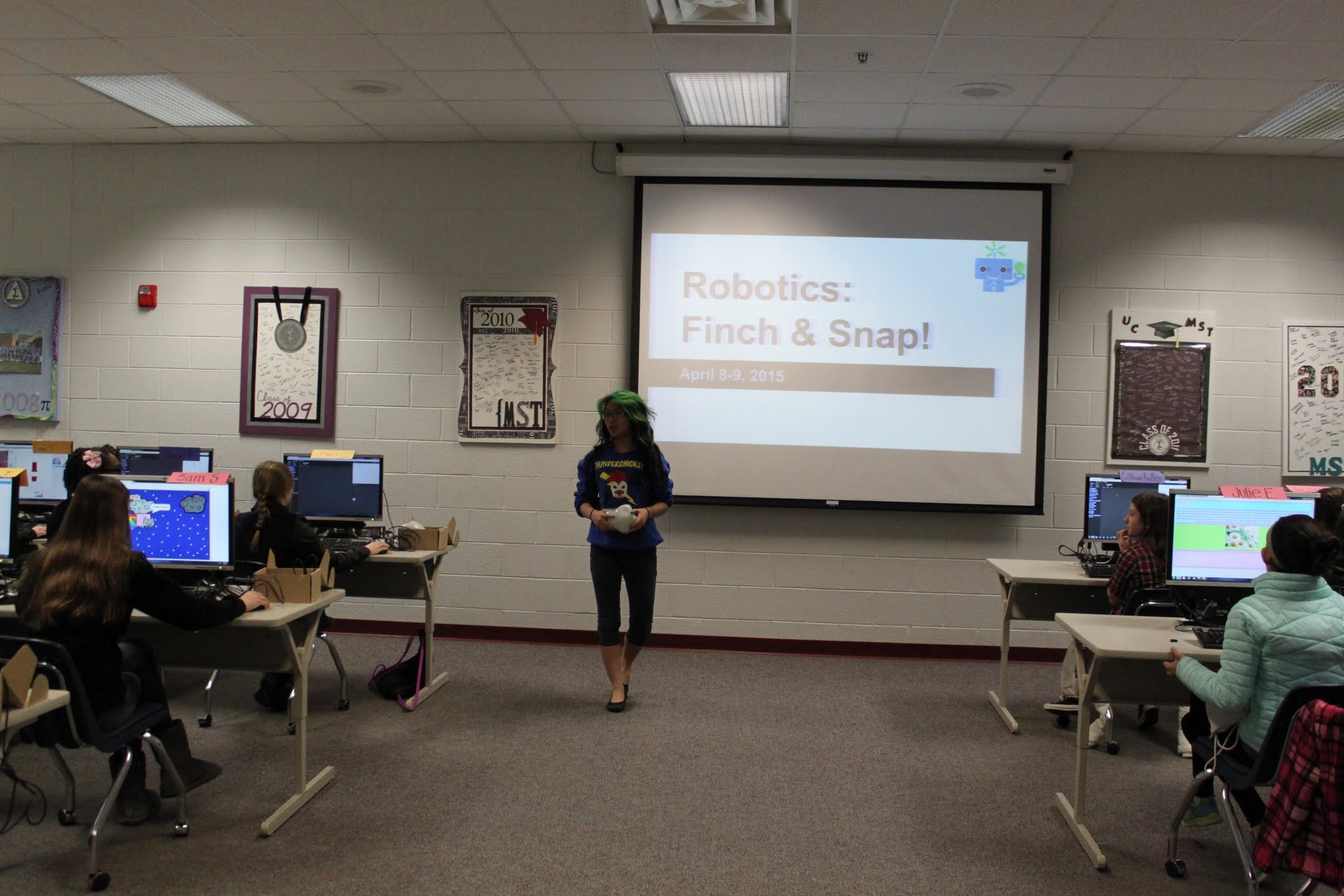
Jane Margolis
I am a social scientist who studies education and inequality. My life is rooted in the civil rights movement history and traditions. Since 1994 I have studied why so few African American, Latino, and female students are learning computer science.
I would like to dedicate my blog to all of the computer science teachers and students I have met along this journey who so deeply inspire me. Especially, I am talking about students in the most underserved schools, with high numbers of African-American and Latino students, who are often denied learning opportunities, and then too often dismissed as not interested or capable. But, this is false.
I am thinking of students I met recently at a Tech Fair at Foshay High School in LA. One group was applying their computer science learning to build a game that builds awareness about water consumption; another group was designing an app to provide assistance for victims of domestic violence. One student very dear to my heart is EZMoney Harper who attended Washington Prep HS. EZ was an Exploring Computer Science student and participated in a UCLA summer program where he designed a computer app for volunteers working with homeless people, so that the nearest open shelter could be located. EZ was then was admitted to UCLA, became an engineering student, and an active leader in the Black Student Union. In his last semester, EZ had a 4.0 grade point average. When provided with learning opportunities and resources, brilliance shines! This December, EZ tragically died in a motorcycle accident. I dedicate this honor to him and all of the other creative, caring, and brilliant students who are interested in using computing especially for social good.
Jane Margolis is a researcher at the University of California, Los Angeles Graduate School of Education and Information Studies.
Karen North
Computer science is changing our world; it is a driver of innovation from the sciences to the arts. All students must have opportunities to learn this subject, and they must be supported and believed in, their brilliance recognized.
I am so grateful for our national community of committed educators who are committed to broadening participation in computing and I am so proud to be a champion for this change.
What an honor to be selected as a Champion of Change. I thank all those who have been part of my adventure, as they are my champions. I started teaching in 1985 and enhanced my math lessons by coding with Logo and BASIC on an Apple IIE and TI calculator. I experienced how coding helped students build problem-solving skills. That started my journey advocating in public and political forums for increased educational opportunities. I testified before the Texas State Board of Education, and was on the committees that wrote the Texas computer science standards in 2000 and 2011. In 2013, there were not any computer science courses offered in Spring Branch Independent School District (ISD). Now all but one high school teaches CS.
My main goal is to continue to open up the world of computational thinking for every student in Spring Branch ISD through code.org workshops, Hour of Code events, Code Camps, training Code Buddies, and the West Harris County Branch AAUW Expanding Your Horizons in Science and Mathematics Conference for middle school girls. As an organizer with the Houston NCWIT Aspirations in Computing, I aspire to motivate more girls to study computer science. I believe a key to success for every student is to help others become advocates and champions for CS education.
Karen North is a retired educator, Code.org affiliate, and volunteer, and lives in Houston, Texas.
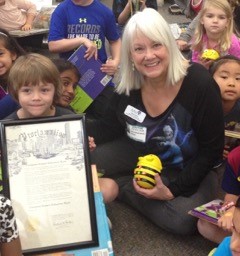
Andreas Stefik
The challenges people face when designing software are multi-faceted. Programming languages can be hard to use and the United States does not currently have an educational infrastructure for learning computer science that is fully inclusive of students with disabilities. With support from grants from the National Science Foundation, I am working to alleviate these problems.
For the first, as I was investigating issues faced by individuals with disabilities, I noticed something odd. While programming technologies have been around for decades, their design was completed with little replicable scientific evidence on how developers actually use them. Since programming languages form the technological foundation for everything from our favorite apps to the nation's cybersecurity infrastructure, this matters. To help, I have created the Quorum programming language, which is a starting point for transforming the evidence standards in this field.
For the second, the population of individuals with disabilities, especially those who are blind, had little support to learn computer science. With the help of others, I created the Experience Programming in Quorum (EPIQ) workshop. Now, universally designed computer science courses, using the evidence-oriented and accessible language Quorum, are taking place in at least 17 U.S. states.
Andreas Stefik, Ph.D. is an assistant professor of computer science at the University of Nevada, Las Vegas.

Angelica Willis
Discovering my love for computer science was somewhat accidental. As a homeschool student, my mother thought it would be a good idea for me to learn some technical skills. I began a life-changing summer project-turned-coding adventure by typing “how to build a website” into a search engine. This simple web search would unlock a whole new world to me, and provided a formal introduction to web development, and later, to the larger realm of computer science. I was hooked.
Fast forward 6 years, I am now a junior computer science student at North Carolina A&T State University (NC A&T), who has been a teaching assistant, tutor, and is now an undergraduate researcher in the areas of behavioral biometric authentication and computer mediated problem solving. I am a 2016 CODE2040 Fellow, which is a program to introduce more talented minority students to Silicon Valley. I am NC A&T’s first University Innovation Fellow through a Stanford University and National Science Foundation initiative that brings together a network of students working to strengthen the entrepreneurship and innovation ecosystems of colleges across the nation. I am a 2015-2016 Student Ambassador to the White House through the White House HBCU All-Star program. I have completed two internships, one as an ecological forecasting intern at NASA, and another as a software development intern with Bank of America.
I often wonder, “What if I had never completed that web search? What if I had never discovered my passion for programming?” I would probably not be where I am today. This is one reason why I am spearheading an initiative to develop an entrepreneurship, design-thinking and computer science centered Makerspace for at-risk youth and underrepresented communities in Greensboro, NC. This endeavor echoes my commitment to doing my part in making sure that the next generation of American innovators does not have to rely on an accidental run-in with computer science, and that an introduction to programing is within reach of all students.
Angelica Willis is a junior computer science student at North Carolina A&T State University in Greensboro, NC.
